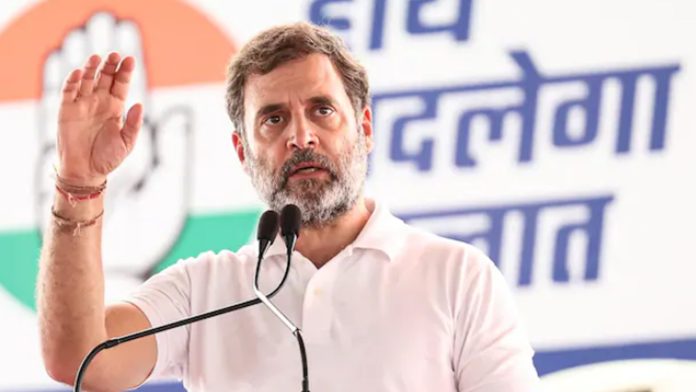A three-line whip is the strictest directive a political party can issue to its legislators, requiring them to be present in the House and vote according to the party’s stance on a particular issue. Defying a three-line whip can lead to disciplinary action, including suspension or even expulsion from the party. It is typically issued for crucial legislative matters where the party leadership wants to ensure full participation and unity.
In This Article:
Congress Directs MPs to Attend Lok Sabha for Three Days
The Indian National Congress has issued a three-line whip to all its Lok Sabha Members of Parliament (MPs), mandating their presence in the House from April 2 to April 4, 2025. The whip, circulated by Congress party’s chief whip in the Lok Sabha, K Suresh, underscores the importance of the upcoming parliamentary sessions and directs all Congress MPs to remain in attendance from 11 AM until the House adjourns each day.
Waqf (Amendment) Bill: A Controversial Legislation
The Waqf (Amendment) Bill, set for discussion in the Lok Sabha starting April 2, 2025, has sparked significant debate within political circles. The bill seeks to introduce modifications to the existing regulations governing state Waqf boards, which manage religious endowments for the Muslim community. Parliamentary Affairs Minister Kiren Rijiju confirmed that the bill has been listed for consideration and passage, with an allocated debate time of eight hours.
Key Provisions of the Bill
- Stricter Oversight: The bill proposes stricter government supervision of Waqf properties to prevent illegal encroachments and mismanagement.
- Restructuring of Waqf Boards: It seeks to redefine the composition and functioning of state Waqf boards to ensure transparency.
- Centralized Authority: The amendments would allow the central government to have a greater say in the decision-making process of these boards.
- Dispute Resolution Mechanisms: A structured mechanism will be put in place to resolve disputes related to Waqf properties.
The government claims these amendments aim to bring greater transparency and accountability to Waqf administration, ensuring that properties meant for religious and charitable purposes are not misused.
Opposition’s Stance: A Strong Objection
The Congress, along with other opposition parties under the INDIA bloc, has expressed strong opposition to the bill, calling it unconstitutional and an attack on religious rights. Senior Congress leaders have criticized the legislation, arguing that it seeks to diminish the autonomy of Waqf boards and could be used to seize Waqf properties under the pretext of reforms.
Arguments by the Opposition:
- Threat to Religious Autonomy: The bill allegedly interferes with the autonomy of Waqf boards, which manage religious properties for the Muslim community.
- Risk of Government Overreach: Opposition leaders argue that granting the central government more authority over Waqf boards is a move towards centralized control.
- Potential Property Seizures: Some MPs fear that the government may use this law to confiscate Waqf properties under the guise of administrative reforms.
- Lack of Consultation: Critics have pointed out that stakeholders, including Muslim community leaders and scholars, were not adequately consulted before drafting the bill.
Government’s Position: Defending the Bill
Despite opposition protests, the ruling BJP-led National Democratic Alliance (NDA) is determined to push the legislation forward. Minister Kiren Rijiju has defended the bill, stating that it does not interfere with the religious freedoms of any community but instead aims to streamline the management of Waqf assets.
Government’s Defense:
- Enhancing Transparency: The bill seeks to curb corruption and mismanagement within Waqf boards, making their operations more accountable.
- Preventing Encroachments: The amendments would prevent illegal occupation of Waqf properties and ensure they are used for their intended religious and charitable purposes.
- Administrative Efficiency: Officials argue that the restructuring of Waqf boards will lead to better governance and more efficient management.
- Safeguarding Minority Interests: The government claims that the new provisions would ultimately benefit the Muslim community by protecting Waqf assets from exploitation.
Political Implications of the Whip
The issuance of a three-line whip indicates the Congress party’s strong stance against the bill. The move highlights the opposition’s determination to challenge the government’s legislative agenda and mobilize its MPs effectively in the House. Non-compliance with the whip could result in strict disciplinary action against party MPs.
Potential Outcomes of the Debate:
- Congress MPs’ Compliance: A strong opposition turnout could make it challenging for the government to pass the bill smoothly.
- Defections and Abstentions: If any Congress MPs defy the whip or abstain from voting, it could weaken the opposition’s stand.
- Bill Passage Likely: Given the NDA’s numerical strength in the Lok Sabha, the bill is likely to be passed despite opposition resistance.
- Rajya Sabha Showdown: If the bill clears the Lok Sabha, it will move to the Rajya Sabha, where the opposition may attempt to block or delay it.
What Happens Next?
- The Lok Sabha will debate the bill from April 2 to April 4, 2025.
- Amendments proposed by opposition parties will be discussed and voted on.
- If passed, the bill will be sent to the Rajya Sabha for further approval.
- Once cleared by both Houses of Parliament, it will be sent to the President for assent before becoming law.
Moving Forward
As the Lok Sabha prepares for a heated debate on the Waqf (Amendment) Bill, the political landscape remains highly charged. The Congress’s three-line whip reflects its intent to put up a strong fight, while the government remains firm in its push for the bill’s passage. The next three days in Parliament will be crucial in determining the fate of this contentious legislation and its impact on religious governance in India.
By – Nikita




